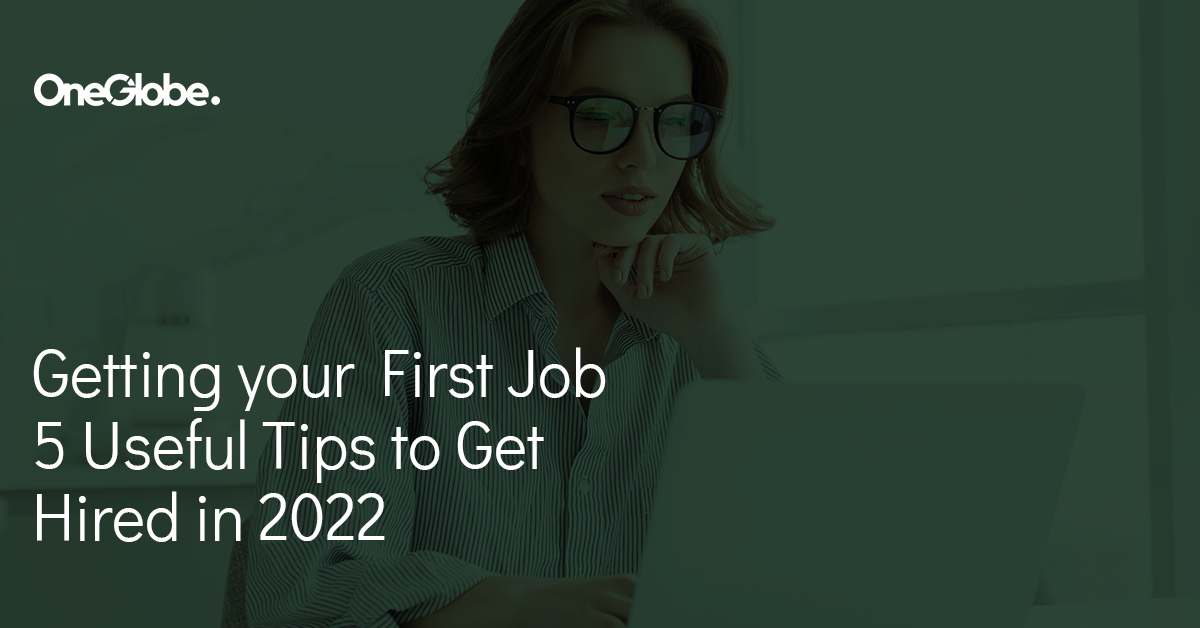
Applying for your first job is both exciting and stressful but it’s something all of us go through at some point. As a fresh graduate, however, you may have trouble finding your first job straight out of college. According to published findings, 43% of first-time job seekers landed jobs that they were overqualified for. 74% of those who were underemployed (employed in jobs that didn’t require their degrees) were still working the same jobs five years down the line.
The reality of the global job market doesn’t always translate to a college degree = ideal first employment. This is why you’ll have to both manage your expectations at the start AND put in the effort to work on professional skills you might have missed out on during formal education. Let’s talk about getting your first job and how Jobs OneGlobe can help you get hired in 2022.
The Fresh Graduate Conundrum
Being a first-time job seeker isn’t ideal in some industries. If you’re a healthcare, finance, or business graduate, you won’t have problems finding your first job after graduating. However, skill-based professions like programming, design, writing or even sales-associated callings require more than just a diploma.
According to CNBC findings, only 38% of new graduates put in the effort to negotiate anything with a potential employer before being hired. For many first-time job seekers, getting hired is enough. This is true in the case of applying for internships or part-time positions which will help improve your CV and expand your skillset. However, being underpaid for what you do and what you can offer is something you should be wary of. Here’s how you can find your first job more easily to the benefit of both yourself and your future employer with Jobs OneGlobe.
“Starting a new job can be nerve-racking, but it’s also exciting.
You’re embarking on a new future, positioning yourself to write a fresh story on a clean slate.” — Adena Friedman
1. Work on Improving your Soft Skills
Given that you’re looking for your first job, odds are that you don’t have a lot of professional experience yet. Don’t be discouraged by that – work on your soft skills instead! Soft skills are an amazing way to mitigate any lack of formal experience you may not have so far. Employers are more than understanding of fresh graduates and first-time job seekers who want to start their careers. Some of the best soft skills you can start working on include:
- Teamwork skills
- Project management skills
- Problem-solving skills
- Interpersonal skills
- Leadership skills
Choose the soft skills you’ll learn based on what you’ve studied and the profession you want to specialize in. With the right soft skills, no employer will have a reason not to give you a first job and an opportunity to show them what you’re capable of.
2. Create your CV with Jobs OneGlobe
When you’re ready to apply for your first job, you should do so with Jobs OneGlobe as your platform of choice. Jobs OneGlobe is uniquely designed with both job seekers and employers in mind. As a first-time job seeker, you’ll have the opportunity to create your new CV through a professional CV builder instead of relying on rudimentary text editors.
This will ensure that your skills, education, hobbies, and other important personal data are presented in a way that employers expect to see. The professional CV builder at Jobs OneGlobe is designed with the help of HR professionals who understand the ins and outs of job applications. This will help you land your first job and ensure that you spend less time working on your CV and more on actually applying for job listings.

3. Approach Every Job Listing Separately
The worst thing you can do is to copy/paste the same CV and cover letter into each job application you make. Every job, every company and every listing are vastly different from one another. If you want to land a great job early on, you need to modify your CV and cover letter based on what the employer is looking for. Jobs OneGlobe allows you to create multiple CVs and update them as you gain new skills and professional experiences.
This will make it easier to apply for multiple job listings each day in search of your first real employment. Read each job listing carefully and try to understand what the employer is looking for in their candidates. Choose the right CV for that listing and write a short cover letter explaining why you’re a good fit for the job vacancy. With some luck, the employer will get back to you shortly with an interview proposal.
“Find out what you like doing best, and get someone to pay you for doing it.” — Katharine Whitehorn
4. Be Professional During your Interview
Your job interview will quite literally make or break your first job application. However, you shouldn’t worry too much about it so that you don’t get nervous during the interview. Instead, prepare by learning more about the company you applied for through the web and social media. Every job interview will be different, and you should be vigilant during the interview and answer every question as objectively as possible. Even if your CV and cover letter are amazing, acting unprofessionally during the interview can torpedo your job application.
Dress up well even if you’re being interviewed via video and make sure that you show up on time. Never lie on your interview or try to dodge questions – this won’t work out in your favor and might cost you a really good first job. Once the interview is over, collect your thoughts and either wait for the interviewer to respond or look for new job vacancies. Never put all of your eggs in one basket and try to diversify your job applications to increase your odds of being employed soon.
5. Don’t Get Discouraged by Unsuccessful Job Applications
Even if you give it your all, some job applications simply won’t go the way you wanted them to. This should in no way discourage you from applying for more job listings, however. Learn what you’ve done wrong previously and try to apply it to your following applications. Unsuccessful job applications aren’t the end of your professional life – they are valuable lessons and steps toward your first job.
You can learn more about why your job application was passed on by asking the employer or interviewer for a follow-up email, for example. This will encourage the employer to write you a feedback message on what you did right, what you did wrong, and what you can do to improve your job applications. Don’t lose hope – the right job vacancy for you is out there somewhere. Use Jobs OneGlobe to find it faster and start your professional career successfully.
“The expert in anything was once a beginner.” – Helen Hayes
Finding your First Job with Jobs OneGlobe
Getting your first job will be one of the most exciting events in your life – you want to do it right! According to recent findings, the standard tenure of employees ages 25 to 34 is 2,8 years. This means that you’re not permanently bound to any one job position if you find a better job or want to change careers down the line.
Sometimes, it’s better to accept a lower-paying job than to be jobless until something better comes along. Only you can be the judge of which jobs to accept and under what conditions, but one thing is for certain. You won’t get closer to finding your first job if you don’t try. Create your candidate profile on Jobs OneGlobe, create your CV, and start applying for different job listings.
Test the waters of how you handle video interviews and how your CV and skills reflect on what employers are looking for. Job hunts are called “hunts” for a reason. It’ll take some time for you to land on your professional feet but once it happens, only the sky will be the limit to what you can accomplish in your career.




Share
Facebook
Twitter
LinkedIn
Telegram
Tumblr
WhatsApp
VK
Mail